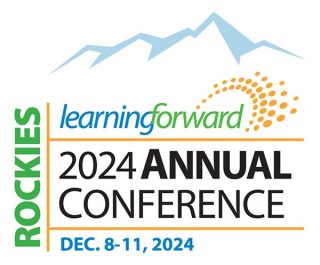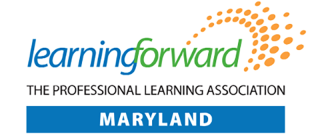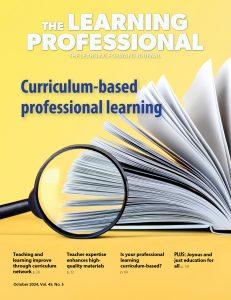DALLAS—July 17, 2012—Learning Forward announces the release of Meet the Promise of Content Standards: Professional Learning Required, a brief on the critical role that professional learning plays in implementing content standards.
The brief outlines a vision for educators supported through high-quality professional learning and calls attention to the urgent need for states, systems and schools to change the way professional learning is delivered. It also describes the elements of a effective professional learning system and provides recommendations for action for educators at the federal, state, system, school, and individual levels.
Meet the Promise of Content Standards: Professional Learning Required was published as part of Learning Forward’s ongoing initiative to develop a comprehensive system of professional learning that spans the distance from the statehouse to the classroom. The initiative, Transforming Professional Learning to Prepare College- and Career-Ready Students: Implementing the Common Core, is supported by Sandler Foundation, the Bill & Melinda Gates Foundation, and the MetLife Foundation.
The two-year initiative’s focus is on providing tools and resources to states and school systems as they work to implement the Common Core State Standards (CCSS) and new assessments.
“The most powerful strategy school systems have at their disposal to improve teacher effectiveness is professional learning,” said Stephanie Hirsh, executive director of Learning Forward. “It is available to almost every educator, and–when planned and implemented correctly–it ensures that educators acquire the knowledge and skill necessary to help more students meet standards.”
The Common Core standards will require teachers to challenge themselves and approach learning in a different way. In order to meet the demands of CCSS, teachers will need to employ instructional strategies that integrate critical and creative thinking, collaboration, problem solving, research and inquiry skills, and presentation or demonstration skills.
The methods of professional learning currently used by most states and systems, however, are not sufficient to meet the challenge of helping educators deploy the instructional strategies required by the new standards.
The brief notes that past school reform efforts have often failed, despite enormous investments in improvement. Changing that trajectory requires a commitment to creating systemic professional learning that builds the expertise of educators to ensure instruction lives up to the promise of the Common Core.
“The promise of college- and career-ready standards, educator effectiveness systems, and new assessments of student learning depend on the capacity of educators to fully implement them, ” said author Joellen Killion, Learning Forward’s senior advisor and director of the Transforming Professional Learning initiative. “Students today cannot wait for a new generation of better-prepared educators to facilitate their learning. The only vehicle available to all schools and school systems is professional learning for educators currently in service and those who are entering the profession.”
Effective professional learning is a shared responsibility and will require not only educators, but school and district leaders, regional and state education agencies, institutes of higher education, federal government, private and public foundation, and non-profit and for-profit education organizations to partake in the learning process.
Among its strategies for success, the brief recommends:
- Federal agencies provide incentives to states demonstrating effective profession learning that results in student achievement.
- State education agencies establish clear goals focused on student success to build strong alignment among regional agencies, higher education, community colleges, technical schools, early childhood, and K-12 schools
- State education agencies align school and district accountability, licensure, relicensure, educator effectiveness, and professional learning policies into a seamless system focused on improving student achievement.
- School systems align individual, team, and schoolwide professional learning with school and district goals for student achievement
- School systems create the culture and structures to support collaborative learning
- Individuals commit to career-long continuous learning as a professional responsibility and career progression to meet the needs of each student; and
- External partners coordinate purchasing, use of, and equitable access to resources to support effective schoolwide, team, and individual professional learning, including technology solutions.






